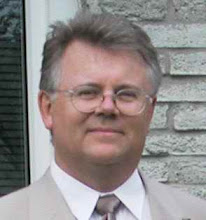Terror and Fear in an Interconnected World
The recent attacks in Canada on the Canadian Parliament and on Canadian military personnel have ratcheted up the rhetoric around how to deal with terrorism, our perceived lack of security, and the need to rebalance citizen rights with the need to protect ourselves via more State intrusion. These debates presume that the recent and future perpetrators are sane and calculating, and not simply the work of crazy people because you just can't predict, and therefore can't protect against, crazy people. So leaving aside the very small fraction of the population that are sufficiently crazy to cause such harm (maybe 0.000001% of the population, but never zero) the broader debate hinges on the degree of fear felt by the population. Fear = terror, and the more sources of terror, the more fear. So to relieve the sense of fear, or so the debate goes, we must remove the sources of terror.
But terror is fear. There is no cause and effect. In a social context fear is the uncertainty that swirls around the ‘other’ who is different from us. Fear does not exist without the ‘other’. Over decades, centuries and millennia there have been many 'others'; people who were not like us. We did not know them. They seemed to behave differently, speak differently, dress differently, pray differently, value different things and think in different ways. We feared those differences as threats to our identity and as competitors for our livelihoods. When sufficiently terrorized, we felt the need to reach out and protect ourselves through actions that attempted reduce or remove the differences in some way. In the past the terror may have been assuaged, but always only temporarily.
Today we live in a fearful and terror filled world. Why? Because today we are seemingly overwhelmed with differences in our lives . Because we are so easily connected to differences all over the world and to people all over the world who can themselves reach out and touch us in some way. We do not know them, so they are different and the uncertainty of what they might do or why they might do it generates a constant, low grade state of fear. As a result of all this uncertainty and fear, we tend seek out those who falsely claim to be able to deliver us certainty. But to those who are aware of history, these people as the enactors of a long story of unintended consequences.
Fear makes the many cower before the one. Fear makes people relinquish their ownership to protect their security, which is to say their certainty, so they have neither ownership nor security. Fear makes many people surrender to ‘strong man’ posers who know only the force of coercion and not the real strength of partnership. Fear is the destroyer of trust, while distrust is the handmaiden of fear. Fear is neither creator nor builder, but the nemesis of both. Fear is the enemy of democracy and the friend of tyrants. Fear may be kept at bay for a time with vigilance but it is not destroyed with violence. Violence only affirms fear and perpetuates tyrants. As science has shown, fear is destroyed by eliminating the sense of difference. When ‘I’ and ‘them’ are replaced by ‘we’, fear disappears.
What we easily forget is that the quality of our lives is fundamentally based on diversity. The more diversity, the more innovation. It is no coincidence that the most innovative, productive and the most affluent period in human history coincides with the most heterogeneous period of human thought, knowledge and values. Again, anyone today can be exposed to anyone world over. Diversity is the thing that is the foundation of our freedom from ignorance, freedom from disease, freedom from poverty, freedom from a premature death, freedom from social violence (at least comparatively to two hundred years ago or more). The quality of our civilization is the power of our diversity -- plus our creativity at overcoming fear and conflict through more and more sophisticated systems of cooperation and collaboration.
There is much so much more that people all over the world share in common than separates them in differences. If we want to truly eliminate fear and terrorism, then we need to find more ways to create ‘we’. Today we have the tools to accomplish this like never before. They are, in fact, the same tools that are generating the added fear in the first place -- the internet, social media, computers, telecommunications. Future heroes will be those with the courage to destroy fear by destroying the differences which artificially separate us and by bringing those differences, and us, together as creative partners.


0 Comments:
Post a Comment
<< Home